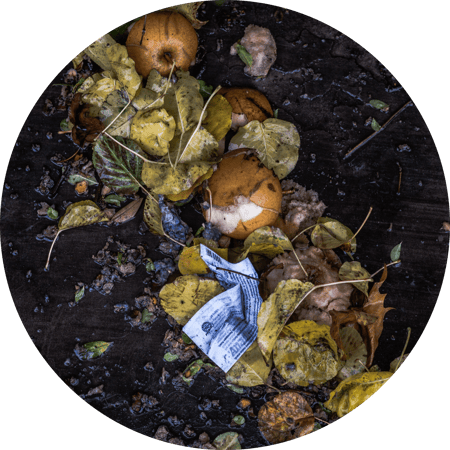

The Impact of organic and bio-waste management practices play a crucial role in mitigating global greenhouse gas (GHG) emissions. These emissions arise from the decomposition of organic waste in landfills and from improper waste handling. The adverse environmental effects include soil and water pollution, methane emissions, and the squandering of potentially recoverable resources.
Some examples of organic/bio-waste management are:
- Composting: transforming organic waste into nutrient-rich soil, reducing the need for synthetic fertilizers and promoting soil health.
- Anaerobic digestion: converting organic waste into biogas and digestate, providing renewable energy and organic fertilizer, respectively.
- Recycling of organic waste, through methods like vermicomposting, enhances soil structure, provides valuable nutrients, and diverts waste from landfills.
- Biochar production through pyrolysis helps sequester carbon, improve soil conditions, and provide a renewable source of energy.
Bio-waste can be converted into green energy sources such as biochar and syngas:
- Biochar production through pyrolysis helps sequester carbon, improve soil conditions, and provide a renewable source of energy.
- Syngas, or synthetic gas, can be generated from plant biomass or waste products through gasification or pyrolysis. It can be part of a carbon-neutral cycle, absorbing as much CO₂ when grown as it emits when burned.
Proba's approach
Unlock the value of your sustainability efforts. Proba’s supply chain decarbonization platform provides a means for you to turn your climate actions into carbon certificates; assets which can be traded with your supply chain partners. Proba’s platform facilitates identification and engagement with interested parties in your supply chain. This not only assists in reducing the Scope 3 emissions of your supply chain partners but also opens new revenue streams for your business.
Here's how Proba works in four straightforward steps:
- Detail how your organic/bio-waste management initiative removes or reduces GHG emissions and register your project on our platform.
- Ensure transparency and credibility through our third-party verification process.
- Convert your GHG reductions into Carbon Credits. Once verified, each tonne of CO₂ reduced or removed is converted into a tangible asset.
- Transfer your carbon certificate to your supply chain partners, who can claim the climate benefit and account for a reduction in its Scope 3 footprint, ensuring that your efforts are uniquely recognized and valued.
Your climate actions have value. Let’s unlock it together!
